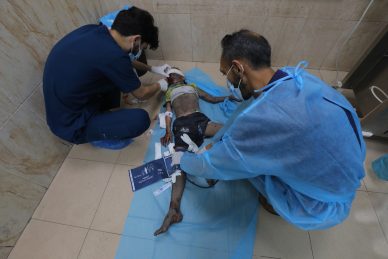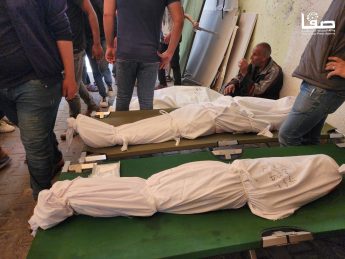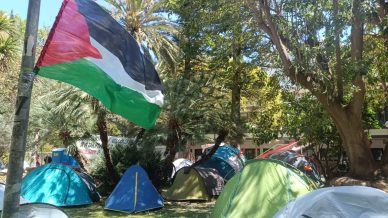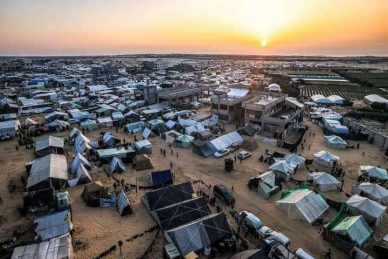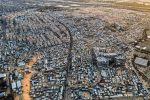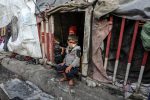GAZA, (PIC)
Ahmed Youssef, an employee at the Palestinian Ministry of Health in Gaza, was unable to receive his salary for the third month in a row due to the lack of liquidity in the enclave. His situation is similar to thousands of employees who are desperately searching for liquidity.
Youssef told the Palestinian Information Center (PIC) that his salary is deposited into his account monthly, but he couldn’t withdraw it due to the liquidity crisis. This has caused difficult living conditions and an inability to meet his family’s basic needs.
The liquidity shortage in Gaza is one aspect of the Israeli aggression and genocide since October 7th. Attempts by some individuals to receive money from their relatives abroad face difficulties in transfers and exorbitant fees, with transfer commissions ranging from 20% to 30%.
The lack of liquidity also negatively affects the ability of traders to engage in economic activities, leading to paralysis in commercial and economic life.
Targeting the financial system
Various reports have documented the deliberate Israeli targeting of money delivery locations and their operators. The Israeli targeting of the banking system is not limited to Gaza but also extends to the West Bank, through targeting exchange shops and seizing their funds.
Although banks in Palestine are supervised by the Palestinian Monetary Authority under the Palestinian Authority, they remain under the almost absolute control of the Central Bank of Israel.
The Israeli shekel is a major currency in Palestine, along with the Jordanian dinar, the euro, and the dollar, and it is legally used as a means of payment for all purposes.
During the current Israeli war on the Gaza Strip, the occupation army destroyed or disabled all Banks’ branches in the northern and central parts of the Strip, leaving only 5 operating branches in the city of Rafah in the southern part, out of a total of 56 branches in the entire Strip.
Out of the original 91 ATMs that were operating in the Strip before this war, only 7 ATMs remain operational.
Exacerbated suffering
In his interview with our correspondent, citizen Bilal Ibrahim points out the difficulty of obtaining money for himself and his family for more than two months due to the severe shortage of cash liquidity in the Palestinian markets.
Bilal adds that the economic conditions have become extremely dire for the majority of Palestinian families due to the scarcity of cash liquidity and the difficulty of obtaining it, as well as the high fees imposed by money changers.
He recalls that at the beginning of the war on Gaza, money changers were charging a percentage that did not exceed 1% to 2% under the worst conditions. However, the percentage gradually increased until the end of April, reaching 20%.
Bilal explains that the recipient of the financial remittance bears the percentage received by the money changer, which is deducted from the received amount, in addition to the exchange being made in Israeli shekels at a lower rate than the market exchange rate.


